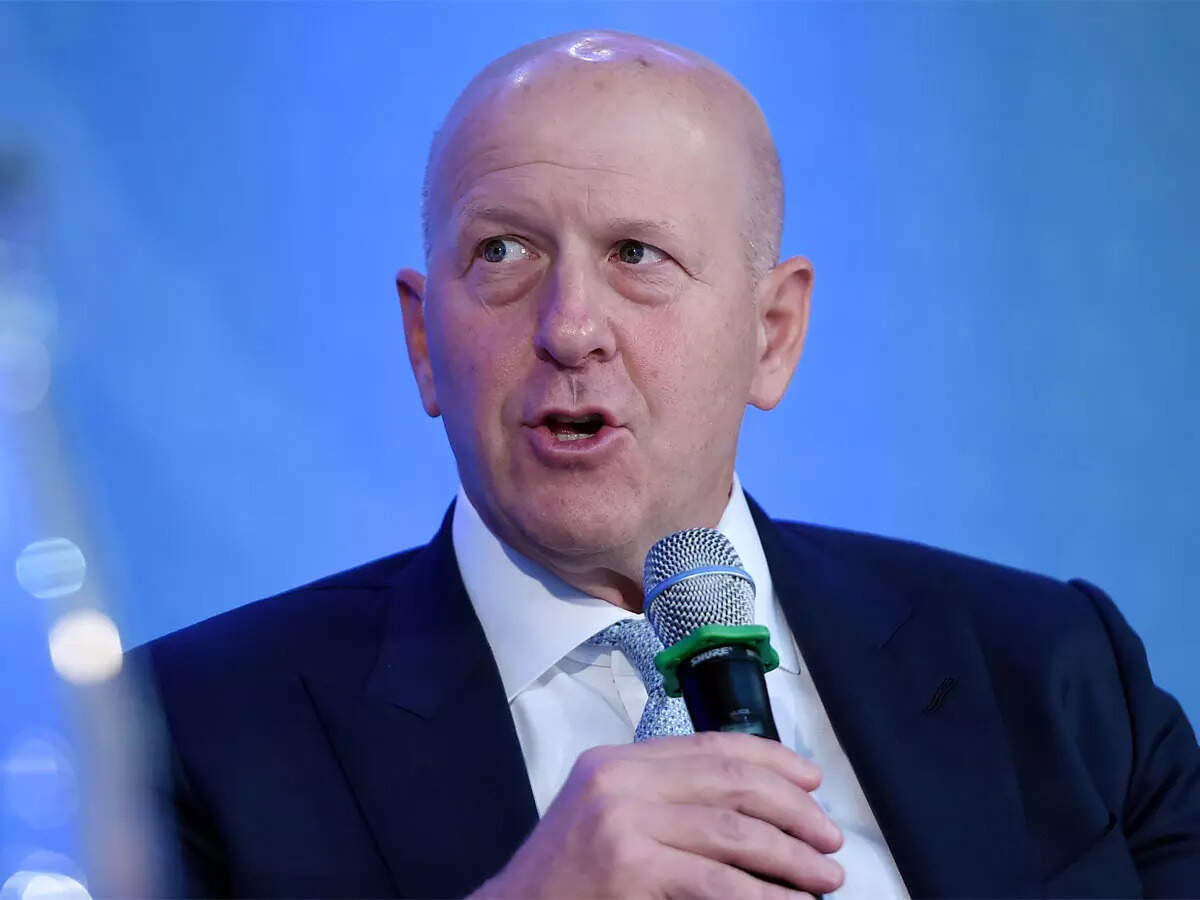
Since 2006, Goldman Sachs has invested nearly $7 billion in India of proprietary as well as client capital that it manages, and continues to see opportunities, given the growth prospects, said its top executive.
“A great tech ecosystem coupled with innovation has developed here in India and that is also an important part of our business. So, the role of India will only grow bigger,” said David Solomon, chair and chief executive of the Wall Street bank, in an exclusive hour-long conversation with ET, during his maiden trip to India since taking over the top job in 2018.
Covering wide ranging topics including India benefitting from the ongoing geo-political flux, the reformist agenda of the Narendra Modi government, the possibility of a US recession, the future of global high finance in the era of cryptocurrencies and blockchains and even the valuation of global technology stocks, Solomon, incontrovertibly, one of the most nonconformist investment bankers who loves to DJ and will be performing alongside millennial icons Dua Lipa, Doja Cat at the Lollapalooza music festival in Chicago this July, emphasised that the growth momentum in India makes him “quite bullish” on the bank’s local franchise. “Over the next three to five years, will only get more significant,” he said.
Supply Chains
Goldman Sachs was recently part of the merchant banking consortium that advised the government on the initial public offering of LIC, the biggest-ever share sale and have been involved in several marque transactions including Tata’s acquisition of BigBasket, Reliance acquisition of JustDial, ArcelorMittal’s buyout of Essar Steel.
“We think positively about the system here, particularly the extraordinary talent ecosystem,” said Solomon. “The government is currently easing the bureaucracy to make doing business simpler. The changes in the bankruptcy laws are an example of that progress and I think the positive direction has to be good for economic growth and participation, which in turn will bring about more investment.”
However, India is still not at the top of global CEO conversations when it came to moving supply chains from China. “There are other places in the world that are up higher on the list of destinations for building alternative supply chains, but that doesn’t mean some people are not investing in businesses here. India is an attractive investment opportunity in and of itself.”
Elaborating further, Solomon said, several factors are causing people to re-evaluate supply chains, as they are conscious of security and resilience, “both in terms of the supply chain and access, as opposed to manufacturing at the lowest possible price.” And this predates the ongoing Russia-Ukraine war. “Geopolitics with China was starting to lead people to think differently about minerals.” More recently, Russian expansionist policies, post Ukraine, have forced countries “to really think about energy security and alternative sources of gas…it’s been a variety of things that led people to think more about supply chain security around energy, commodities, food and healthcare, particularly related to ensuring access, including through localisation.”
Talking about US staring at a potential stagflation, Solomon added that the economic conditions are starting to tighten in his home country and that will have broader effect on demand over time. “When you have economic tightening like this, one plausible scenario is a recession where you wind up with some sort of economic slowdown.” But he went on to say, at the moment, “the US economy is actually in pretty good shape.”
For the world’s second biggest investment bank, Bangalore is a technology hub and the second-largest office in its sprawling global ecosystem. “We have 8,500 people in India. We find the talent extraordinary and compelling as exemplified by our 4,000 engineers, who are deeply embedded in our strategy on a front-to-back basis and allow us to execute on our global growth strategy. When you look at the digital buildouts in transaction banking, as in our digital consumer platform, many of those engineering resources are here in India,” he said.